The content of the article
Despite the fact that the procedure has quite a few opponents, veterinarians speak loudly that castration is the only way to ensure the normal life of a cat next to a person. Timely removal of the testes is the lack of hormonal maturation of the kitten. That is, hormones are not produced, maturity does not occur. All this leads to a mass of positive outcomes - the cat does not mark the territory and does not leave a terrible smell throughout the apartment. A castrated animal does not ask to go outside. Do not think that we are depriving the cat of something important in life, this is only a natural instinct for reproduction. And if the cat is neutered on time, in the first year of life, the procedure for him is almost painless, the animal tolerates the operation perfectly.
However, other problems may arise with this. The absence of the production of certain hormones slows down the metabolic processes in the body, as a result of which the cat may begin to gain excess weight. In addition, motor activity is often reduced - now the pet does not need to wander around the yards in search of a lady of the heart, the call of nature is suppressed. To prevent the accumulation of excess fat mass, the owner should pay close attention to the cat's diet. In particular, the question arises - is it possible to feed a castrated animal with fish?
The benefits and harms of fish for a castrated cat
It has long been believed that fish is a primordial food for a cat, which is not only healthy, but also very tasty. It is difficult to find a kitty or cat who would refuse this treat. But if you look deeper, in nature domestic cats appeared from the steppe individuals, who practically did not see fish. Only a few cat species have the ability to fish. The diet of the rest is made up of birds and other small animals. And an excess of fish on the menu can only harm the body.
- First of all, the danger of fish lies in a large number of small bones that can get stuck in the mucosa of the esophagus, stomach, intestines and other parts of the digestive tract. Sometimes this leads to death.
- Very often we give cats raw fish. This is quite dangerous, since raw fish contain parasites and their larvae. Without heat treatment, the larvae enter the animal’s body and infect the intestines, liver, and enter the blood and respiratory organs. Especially dangerous is the cat fluke parasite, which affects the liver, gall bladder, and pancreas.
- The fish contains a high content of phosphorus and magnesium, which, when overused, are the cause of the deposition of salts in the kidneys of the animal. After castration, the urinary system is one of the most vulnerable, so fish abuse is undesirable.
- In addition, river fish contain a lot of salt and iodine, which also adversely affect the health of the kidneys.
- In addition, often for a cat they buy small fish of not the best quality, caught in a local city pond. In such places, fish can swim in dirty waters with lots of pesticides, antibiotics, and other chemicals. Such a fish will only bring harm to a cat.
To summarize, we can say that fish is almost pure protein. Protein food makes the urine of the animal more concentrated, which is the first step in the development of urolithiasis. In addition, an excess of fish in the diet can cause obesity, which should beware after castration. Therefore, raw fish should not be on the menu of a castrated animal.
What kind of fish can a cat eat after castration?
Despite all the disadvantages, the fish has a lot of useful vitamins, which will be useful for the body of a castrated cat. Fish is rich in essential omega acids, which will support the pet’s health. In order to bring the cat only benefits and not harm, the fish can be eaten no more than once a week, always in boiled form. In addition, you should clean it from the bones and try to treat the pet only with clean fillet. It is also useful to use fish stock - based on it, you can cook cereal cereals.
Remember that urolithiasis is quite common in cats, and even more often in castrated individuals. The first symptoms of the disease are painful and difficult urination, urine with blood, impaired appetite, endless "licking" of the urethra. The disease is most often triggered by an excess of raw fish in the diet. Remember that the castrato menu should be low-calorie, varied and useful. And then you can maintain the health of the pet for many years.
Video: how to feed a castrated cat?

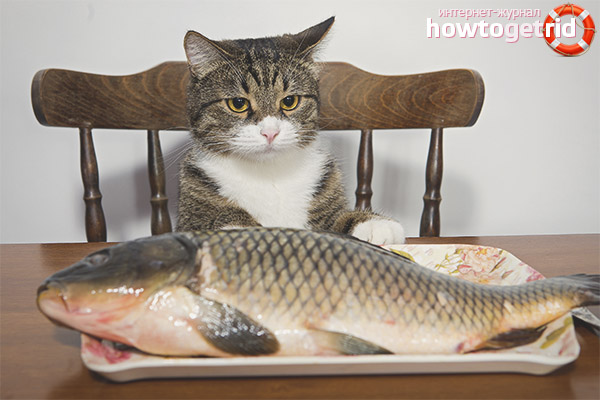
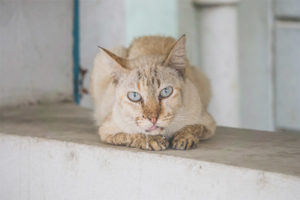
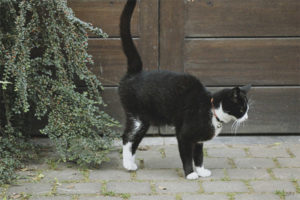
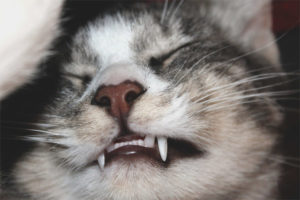
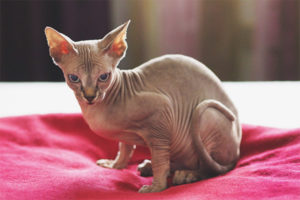
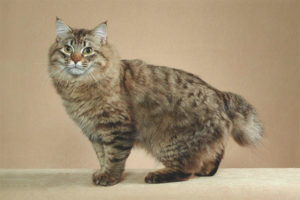
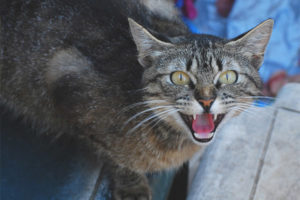
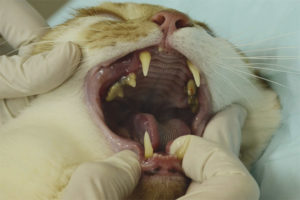
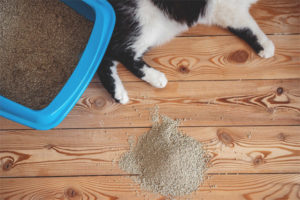
Submit